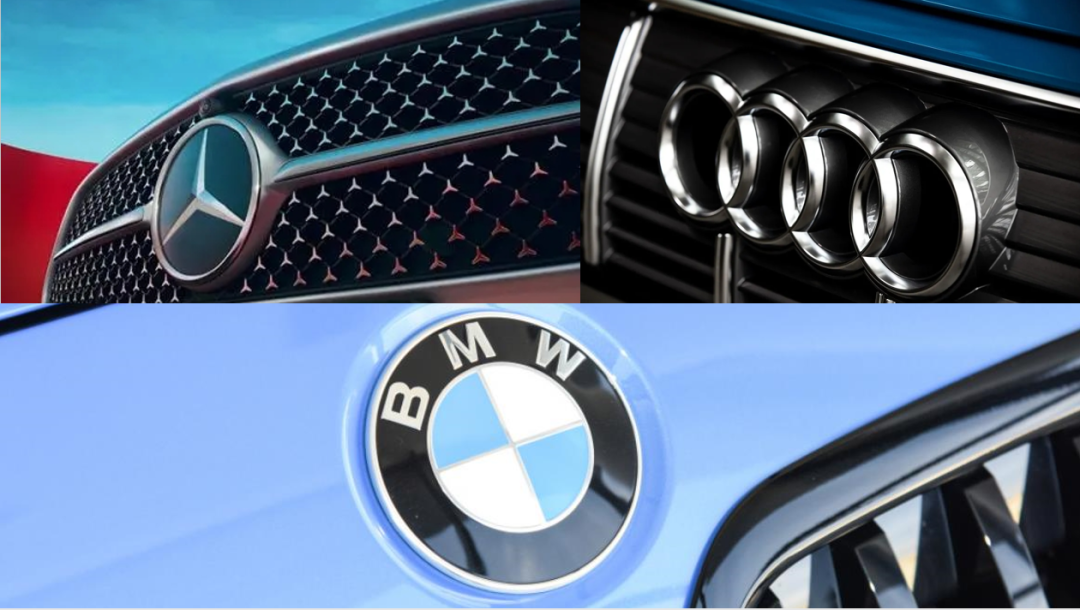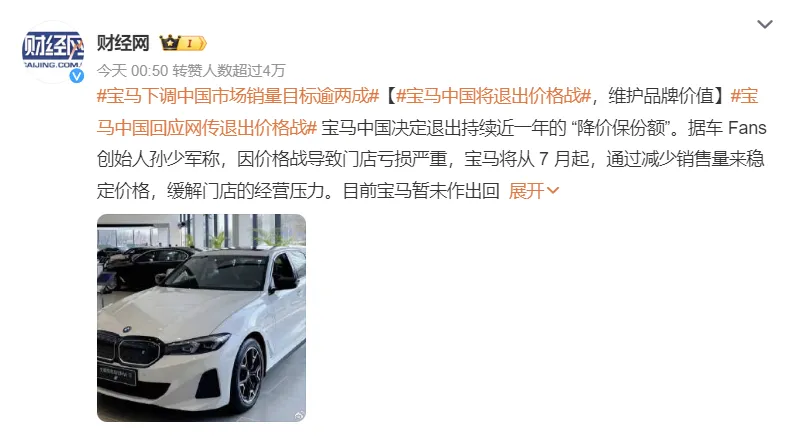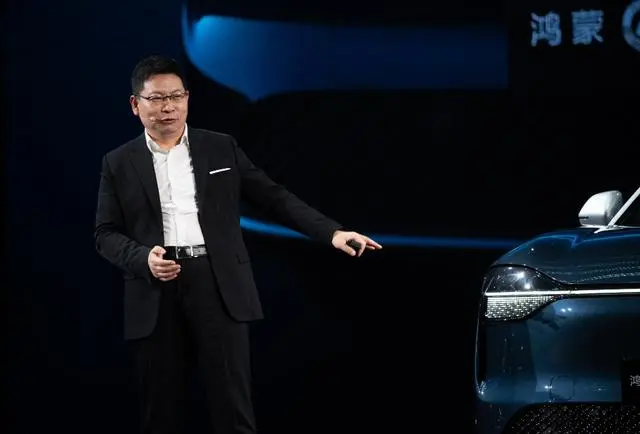BMW Loses the Price War and Takes Up the Banner Against Auto Industry Involution
![]() 07/15 2024
07/15 2024
![]() 574
574

If you don't work harder, you'll only be able to drive a BMW in the future. This is not entirely a joke in China's increasingly competitive automotive consumer market. Over the past year, BMW China has pursued a market strategy of "cutting prices to maintain market share," actively participating in price wars with other luxury car brands, especially in the pure electric vehicle segment. For example, in June this year, volume-driven models represented by the BMW i3 had their prices halved compared to the guided price of 353,900 yuan, making it possible to buy a BMW for under 200,000 yuan. The starting price of the BMW 5 Series gasoline-powered car was reduced to around 310,000 yuan, equivalent to a 30% discount. Even for the best-selling Mercedes-Benz C-Class, BMW 3 Series, and Audi A4L, consumers could negotiate discounts exceeding 100,000 yuan, bringing their prices below 300,000 yuan.
BMW and Mercedes-Benz Can't Sell Even with Price Cuts. It used to be "can't afford B-B-A," now it's "only afford B-B-A if you're broke." This aptly reflects the fact that the prices of China's independent automotive brands are rising year by year, continuously breaking into the high-end market. According to statistics from Cui Dongshu, Secretary-General of the China Passenger Car Association, the average price of passenger cars in China has "become more expensive despite price cuts" over the past five years. According to his figures, the average price of vehicles in the Chinese auto market has risen from 142,000 yuan in 2019 to 179,000 yuan this year. In June alone, the average price was even higher at 186,000 yuan. Specifically, in June this year, Wenjie M9 delivered 17,241 vehicles, with cumulative orders exceeding 100,000 since its launch, making it the "sales champion" among vehicles priced above 500,000 yuan. As of the end of June, the NIO U8, priced above one million yuan, had sold 7,501 units cumulatively, with over 400 sold in June alone, making it a "dark horse" among million-yuan luxury cars. Research reports from Founder Securities show that from January 2021 to December 2023, the share of independent brands in China's luxury car market has increased from 1.38% to 17.33%, primarily due to the efforts of independent brands and new forces.
Currently, independent mid-to-high-end automotive brands led by BYD, HarmonyOS Smart Mobility (Si Jie), NIO, Xpeng, and Li Auto continue to erode the market share of traditional overseas luxury car brands. For instance, BYD has established a mid-to-high-end brand matrix comprising "BYD Atto 3, FANGCHENGBAO, and DENZA." The fourth "Jie" brand model, a collaboration between HarmonyOS Smart Mobility and Chery, is also set to be released soon. Faced with the impact of domestic independent brands, traditional luxury car brands such as BMW, collectively known as "B-B-A," have successively adopted sales strategies of trading price for volume over the past year or two. However, price cuts have not led to significant sales growth. According to Auto LatePost, BMW China's annual discount rate in 2023 was 17.66%, higher than the industry average. The cost is also evident, with BMW's net profit declining by over 30% year-on-year last year, and its pre-tax profit margin in the automotive business at 9.8%, lower than market expectations. BMW China sold a total of 376,000 vehicles in the first half of the year, a year-on-year decline of 4%. Mercedes-Benz, which also significantly reduced prices, saw its sales in China decline by nearly 6% year-on-year in the first half. The starting prices of the Mercedes-Benz E-Class and C-Class are both around 100,000 yuan lower than the guided prices.
Dealers are also under immense pressure during this process. A BMW dealer told the media that almost all entry-level and mainstream models are incurring losses for every unit sold. "We're torn about whether to push for sales in June," said the dealer. The "2023 Auto Dealer Satisfaction Survey and Dealer Survival Status Report" by the All-China Federation of Industry and Commerce Automobile Dealers Chamber of Commerce shows that dealer satisfaction with manufacturers has declined year by year, with only 40% of dealers able to achieve profitability in 2023. In addition to damaging group profits and putting pressure on dealers, discounting also hurts brand value. According to data released by the China Automobile Dealers Association, BMW's used car depreciation rate fell by 3% month-on-month in June, with the BMW X3's depreciation rate lower than that of the NIO ES6. One car owner shared on social media that they wanted to trade in their BMW i3, which had a landing price of 310,000 yuan, for a BMW iX3 after driving it for a week, and the salesperson estimated its value at 210,000 yuan. Perhaps realizing that relying solely on price cuts can no longer effectively stimulate sales and alleviate dealer pressure, BMW China, in response to rumors of withdrawing from the price war, directly stated that in the second half of the year, BMW will focus on business quality in the Chinese market and support dealers in taking a steady approach.

This means that BMW China has decided to adjust its nearly year-long strategy of "cutting prices to maintain market share," no longer engaging in mechanical price competition with the industry and blindly pursuing market share. It is worth mentioning that other luxury brands are also reducing production. Volkswagen recently announced that it may close Audi's plant in Brussels due to a significant decline in demand for high-end electric vehicles, and the Audi Q8 e-tron, launched in 2018, may also be discontinued next year. Earlier, Porsche announced production cuts for its electric Taycan, with sales in China declining by one-third year-on-year in the first half. In August 2023, Gao Xiang, Senior Vice President of Marketing at BMW Brilliance, publicly stated that BMW aims to maintain price stability to win customer trust, so they will not join the price war or adjust prices weekly as this is not the most customer-friendly approach. After nearly a year of trial and error, BMW China has returned to its starting point. It can also be said that luxury car brands such as BMW and independent automakers have lost the price war. Since they can't compete on price, they choose to "lie down" at the smallest cost and return to their original strategies to maintain a high-end image.
Some netizens have pointed out incisively that it's impossible for BMW to cut prices too much; if they don't, sales will surely decline, and layoffs may follow. It's better to die standing up with dignity and accept market changes. BMW's current level is neither competitive in pricing nor technology; it lags behind in all aspects, and buying it is no better than buying an ice cream.
Opposing Price War Involution, BMW Takes Up the Banner. To some extent, one of the crucial reasons why traditional luxury car brands such as "B-B-A" have firmly held their advantageous market positions in the past lies in their first-mover advantage. They had ample time to establish their brands, and brand value became their deepest moat. However, China's independent automotive brands have discovered opportunities to overtake in new energy vehicles, using speed to outmaneuver and gradually disrupt the original market landscape. In 2021, Yu Chengdong stated at an internal Huawei meeting that they aimed to "eliminate" the market space occupied by Mercedes-Benz, BMW, and Audi in the 300,000 to 500,000 yuan price range. The following year, Li Xiang also publicly declared that by the end of 2024 at the latest, the prices of B-B-A's domestically produced medium to large SUV flagship models would be below 500,000 yuan. These slogans were deemed overly ambitious at the time, but it now appears that this day is approaching. A research report from SOOCHOW Securities states that from a 2024 planning perspective, independent brands remain relatively active in the luxury car market, with a full range of new energy vehicles blooming.

This has directly led to an intensification of price wars in China's automotive market, with major automakers launching discounts, limited-time benefits, trade-in subsidies, and other incentives to grab market share. The price war has undoubtedly reshaped the industrial landscape, significantly increasing the market share of new energy vehicles, particularly the sales of independent brands, while traditional joint venture and overseas brands have struggled to sell. Data released by the China Association of Automobile Manufacturers on July 10 showed that China's new energy vehicle production and sales in June reached 1.003 million and 1.049 million units, respectively, up 28.1% and 30.1% year-on-year, with a market share of 41.1%. However, its negative impact cannot be ignored. While automakers' sales have increased after significant price cuts, their profits have declined. For example, GAC Group reported a net profit attributable to shareholders of listed companies of 1.22 billion yuan in the first quarter of this year, a year-on-year decline of 20.65%, primarily due to intense price competition and the company's increased promotional efforts. According to Wind data, among the 18 major listed automakers in China, only seven (excluding those with negative net profits) saw a year-on-year increase in net profit in the first quarter of this year, accounting for just 38.89%. Many automakers' performance announcements have mentioned the impact of price wars on profits. BMW China's recent adjustment has inadvertently taken up the banner of distancing automakers from price wars and the "involution" of price cuts.
Financial commentators argue that all links in the automotive supply chain have suffered from involution for a long time, but few dare to jump out of this vortex. As the first global automotive brand to proactively withdraw from the price war and shift to a defensive strategy of protecting brand prices, BMW's move carries strong symbolic significance, helping more automakers rethink the necessity of selling cars at low prices to gain market share, thereby breaking the vicious cycle of price wars. Abnormal involution and blind low-price competition are indeed detrimental to the orderly development of the industry, drawing criticism from various quarters within the automotive industry.
At the 2024 China Automotive Forum, executives from automakers such as Geely, Chery, and JAC Motor unanimously called for distancing from involution and price wars and pursuing a path of brand upgrading. For example, Yang Xueliang, Senior Vice President of Geely Holding Group, stated that involution is not a good thing and that it is necessary to study how to escape from and break the cycle of involution. "As long as the word 'involution' exists, Chinese cars cannot truly go global," he said. Earlier, on June 6, Zeng Qinghong, Chairman of GAC Group, stated at the 2024 China Automotive Chongqing Forum that the current "involution" in the automotive industry is intensifying. Continuing down this path is not a solution, as the purpose of enterprises is to make profits and contribute to society. There should be a broader perspective, a long-term strategic approach, rather than focusing solely on involution. Without profitability, enterprises cannot survive. Of course, not all automakers view involution as a bad thing. For example, Zhu Huarong, Chairman of Changan Automobile, believes that involution in the automotive industry is a normal process of good money driving out bad, the best way for the industry to quickly return to healthy competition; Wang Chuanfu, Chairman of BYD, also stated that "involution" is a form of competition, the essence of market competition, and he called on all entrepreneurs to embrace and participate in involution to support Chinese brands and create world-leading brands. From this perspective, BMW China's withdrawal from the price war is indeed a positive signal for China's automotive consumer market.






